News in Brief
-
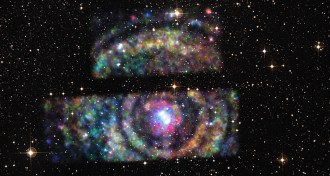 Astronomy
AstronomyX-ray rings reveal neutron star’s distance
Concentric X-ray rings around a neutron star help astronomers triangulate the star’s distance.
-
 Life
LifeHow vitamin B12 makes pimples pop up
Vitamin B12 causes acne by altering metabolism of skin bacteria.
-
 Planetary Science
Planetary ScienceEvidence mounts for active volcanoes on Venus
The Venus Express orbiter detected possible signs of active volcanism on the planet next door.
-
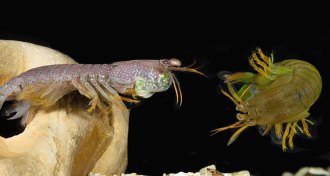 Animals
AnimalsHow mantis shrimps spar
In ritualized combat between deadly mantis shrimp, blows count but don’t kill.
By Susan Milius -
 Health & Medicine
Health & MedicineAntibiotics can treat appendicitis
Antibiotics can successfully treat the majority of cases of a type of appendicitis, researchers find.
By Meghan Rosen -
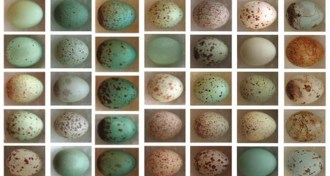 Animals
AnimalsUnpredictable egg scramble throws off parasitic parents
Eggs of some species of warbler and weaver birds appear to have individual signatures, which can help distinguish them from the eggs of parasitic cuckoos.
-
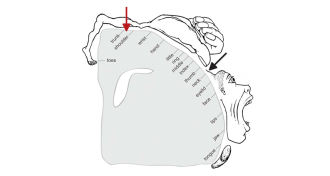 Neuroscience
NeuroscienceHomunculus reimagined
A new study pinpoints the part of the brain that controls the neck muscles, tweaking the motor homunculus.
-
 Animals
AnimalsMale peacocks keep eyes low when checking out competition
Eye-tracking technology shows peacocks barely gaze at the full height of other males magnificent eyespot feather spreads.
By Susan Milius -
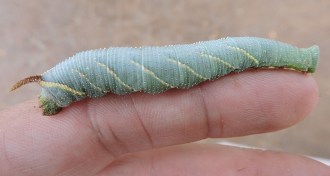 Animals
AnimalsWhy whistling caterpillars scare birds
Caterpillars that whistle when birds peck at them may be giving phony avian warning calls.
By Susan Milius -
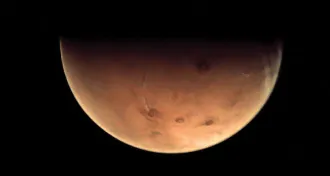 Planetary Science
Planetary ScienceMethane found in meteorites from Mars
Methane stored in Martian meteorites points to possibly habitable environments beneath the surface of the Red Planet.
-
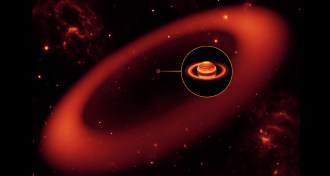 Planetary Science
Planetary ScienceSaturn’s widest ring measured
Saturn has an invisible belt that's nearly 270 times as wide as the giant planet, researchers report.
-
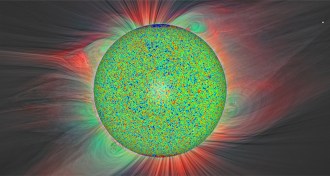 Astronomy
AstronomySome of sun’s magnetic fields may act more like forests
A swaying forest of mangrovelike magnetic fields on the sun could be the answer to why the solar atmosphere is millions of degrees hotter than the surface.